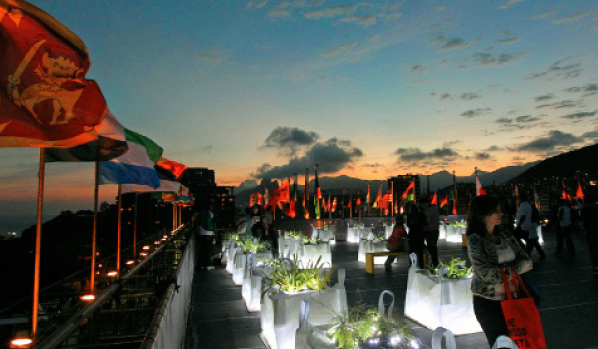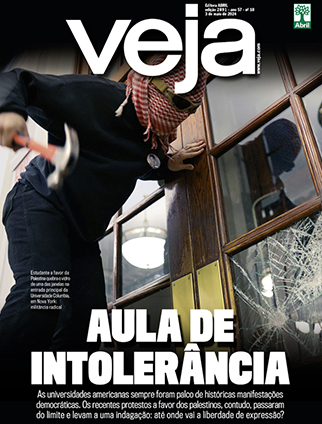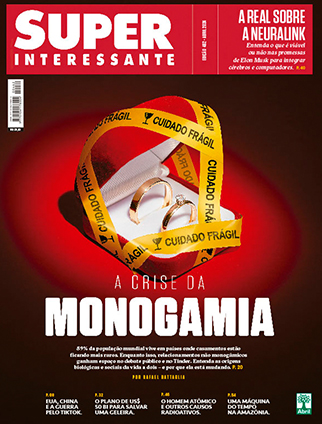Who is going to pay the bill?
Authorities at the Conference on Sustainable Development may not be able to decide in only one week who will finance a cleaner economy – but the good news is society’s pressure for responsible consumption is a path with no return


» Learn how to download the complete edition here
International flags raised, tents assembled in public parks, expos at the Copacabana Fort and other sites, foreign delegations blocking traffic – that is Rio de Janeiro at this moment, dressed in gala and congested for the start of the United Nations Conference on Sustainable Development, Rio+20. The numbers are impressive: 50 000 visitors, delegations from 190 countries, NGOs of every sort, Indigenous groups from Brazil and abroad are in the city to discuss how to reconcile development, quality of life and preservation of the environment. Last Friday, June 15, groups of diplomats, each with their own suggestions, amendments and proposals under their arms, entered and exited closed rooms at Riocentro, the conference site in Barra da Tijuca, trying to trim down the copious 81 pages and give some semblance of agreement to the final document which the heads of state meeting should ratify on the 20th and 22nd. The chances for announcing concrete measures are very remote.
What is most likely is their agreeing to continue discussing – which, in an environment of so many and such large differences (see graphic “Game of interests”), is already good. In short, Rio+20, with all the heavy-weight meetings about the environment preceding it, has two opposing blocks – the rich countries on one side and the emerging and poor ones on the other – with opposite opinions on the two basic issues of sustainable development: 1) how to adapt the economic model to accommodate principles of sustainability; and, even more sensitive, 2) who is going to pay the billion dollar bill for the change.
Last Thursday, Luiz Alberto Figueiredo, head ambassador of Brazil in the negotiations, officially released the proposal by the G77, the group of emerging and poor nations, to create an annual 30 billion dollar fund, starting in 2013, to be financed by the developed nations (since they were the big polluters on planet). It is more decisive than the extremely vague recommendation to invest 100 billion dollars per year, coming who knows where from, and stated as “to have in mind” in the final document of the Copenhagen Conference of 2009. Whether 100 or 30 billion, in order to make it come true, it is necessary to get the rich nations on board. Nations which, at this Rio+20, are precisely less rich and more withdrawn from the idea of assuming most of the cost for changing to more sustainable development.
The idea of a “green economy” emerges in this debate – a difficult concept to swallow either by the radical advocates of the economy or by the green ideologists. For companies, the obligation to consider the social and environmental impact as well as financial health is a straitjacket that could weaken them. For environmentalists, submitting sustainability to the companies’ need for profits is to commercialize the planet’s survival. According to the United Nations Environment Program (UNEP), a green economy is the kind that “results from improvements in humankind’s well-being and social equality while also significantly reducing risks to the environment”. The program points out ten key themes to be faced to make the transition to sustainable development. This transition is estimated to cost 2% of all the wealth produced around the world, annually. And that wouldn’t be all. “It is necessary to achieve new levels of productivity to generate more wealth and reduce degradation of the environment.
This is the only way to look at economy and green simultaneously,” warns American economist and Nobel Prize winner Thomas Heller. Three proposals drawn up at the preparatory meetings that took place over the past two years at the UN, in New York, could be the way for Rio+20 not to be drowning in empty discourse. They are new suggestions that have some chance of being feasible in the future. One is the creation of Sustainable Development Objectives (SDO), a set of goals and deadlines for the transition to a green economy. Another is the consolidation of a new methodology – the Inclusive Wealth Index (IWI) -, which includes data like investments in education and well-being and levels of sustainability in production – to measure progress and replace Gross Domestic Product (GDP). The third proposal is to create a stronger regulatory body, which could be an agency with no ties to the UN, a new agency within it or a UNEP with more powers – a position Brazil defends, since it is the quickest to implement. “When we speak of planet destruction, we use the wrong term. The planet will find ways to recover over the long term as it always has. The problem is in the future that we, humans, will have if we don’t act quickly,” says economist Sérgio Besserman, head of Rio’s commission at Rio+20.
Fortunately for planetary health, other leading players have been doing their homework. Around the world, companies are concerned with delivering products that are less harmful to the environment, forced by more aware and demanding consumers. Day-to-day problems that have been removed from the great plenaries – like filthiness of rivers that cut through the metropolises, ocean pollution, overfishing and the negligence with urban wastes – have not totally disappeared from the discussions because society keeps moving. It demands more and more and, by demanding, it also attracts public authorities. The awakening of this virtuous cycle has, maybe, turned out to be the single great merit of Eco 92, which in fact, in a global scale, contributed only to the ratification of the agreement on cutting the gases that caused the hole in the ozone layer, a problem completely solved today.
Now, with very well defined opposed political groups, great progresses will hardly arise from Rio+20. But, discussion by discussion, from explanation to explanation, and from pressure point to pressure point, sustainability has the chance to impose itself on decisions about the planet’s future. “There is a limit to short-sightedness in this area. We have to discuss this as grown-ups. We must get rid of this environmental guessing”, warned the Brazilian Minister of the Environment, Izabella Teixeira, last week at a seminar in Rio. It is precisely to fight this “environmental guessing” that VEJA publishes the series of reports and articles on the following pages.



 Shopping se manifesta sobre ‘calote’ de Taís Araújo
Shopping se manifesta sobre ‘calote’ de Taís Araújo Mais um dia na vida de Elon Musk: ações da Tesla caem, carros encalham
Mais um dia na vida de Elon Musk: ações da Tesla caem, carros encalham Ivanir dos Santos entra com representação contra Ludmilla: ‘É crime’
Ivanir dos Santos entra com representação contra Ludmilla: ‘É crime’ Eduardo Suplicy surpreende ao comparecer em aniversário de Mano Brown
Eduardo Suplicy surpreende ao comparecer em aniversário de Mano Brown A milionária conta dos carros blindados de Eduardo Paes no Rio
A milionária conta dos carros blindados de Eduardo Paes no Rio







